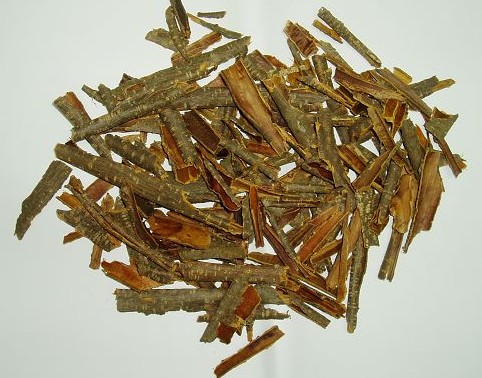Cascara Sagrada Rhamnus purshiana
Precautions: Not to be used during pregnancy or while nursing. Do not use this product if you have abdominal pain or diarrhea. Consult a health care provider prior to use if you are pregnant or nursing. Discontinue use in the event of diarrhea or watery stools. Do not exceed recommended dose. Not for long-term use.
Alternate Names: rhamnus purshiana, cascara, California buckthorn, sacred bark
Cascara sagrada has a long history of traditional use by native americans. Cascara sagrada contains compounds called anthroquinones, which are responsible for cascara's powerful laxative effects. Anthraquinones trigger contractions in the colon, called peristalsis, which causes the urge to have a bowel movement. Today, it is one of the most common herbal laxatives.
In addition to being a powerful laxative, cascara is also believed to improve the muscle tone of the colon walls.
Why Do People Use Cascara Sagrada?
Constipation
Dosage Information
Cascara can be found in various forms: capsules, liquid extracts, and dried bark. The dried bark can be made into tea, although it tastes bitter.Fresh cascara bark should not be used, because it can cause bloody diarrhea and vomiting.
A typical dosage of cascara is a 300 mg capsule taken in the early evening to stimulate a bowel movement in the morning. The laxative effect usually occurs 6 to 12 hours after cascara is taken.
Side Effects and Safety
Cascara sagrada should not be used for longer than 7 days in a row.
Pregnant or nursing women should not use cascara sagrada. Children should not use cascara sagrada.
Cascara or other anthraquinone-containing herbs should not be used by people with diverticular disease, ulcerative colitis, Crohn's disease, severe hemorrhoids, blood vessel disease, congestive heart failure, heart disease, severe anemia, abdominal hernia, gastrointestinal cancer, recent colon surgery, or liver and kidney disease. It should not be used if appendicitis is suspected.
Cascara may interact with drugs called cardiac glycosides, such as digitalis.
Side effects of cascara may include strong cramping in the abdomen (due to muscle contractions, electrolyte imbalance (loss of potassium) and loss of body fluids, and dark pigmentation in the colon, called melanosis coli with longer term use. Call your doctor if you experience bloody diarrhea, discolored urine, vomiting, or prolonged abdominal pain after using cascara.

